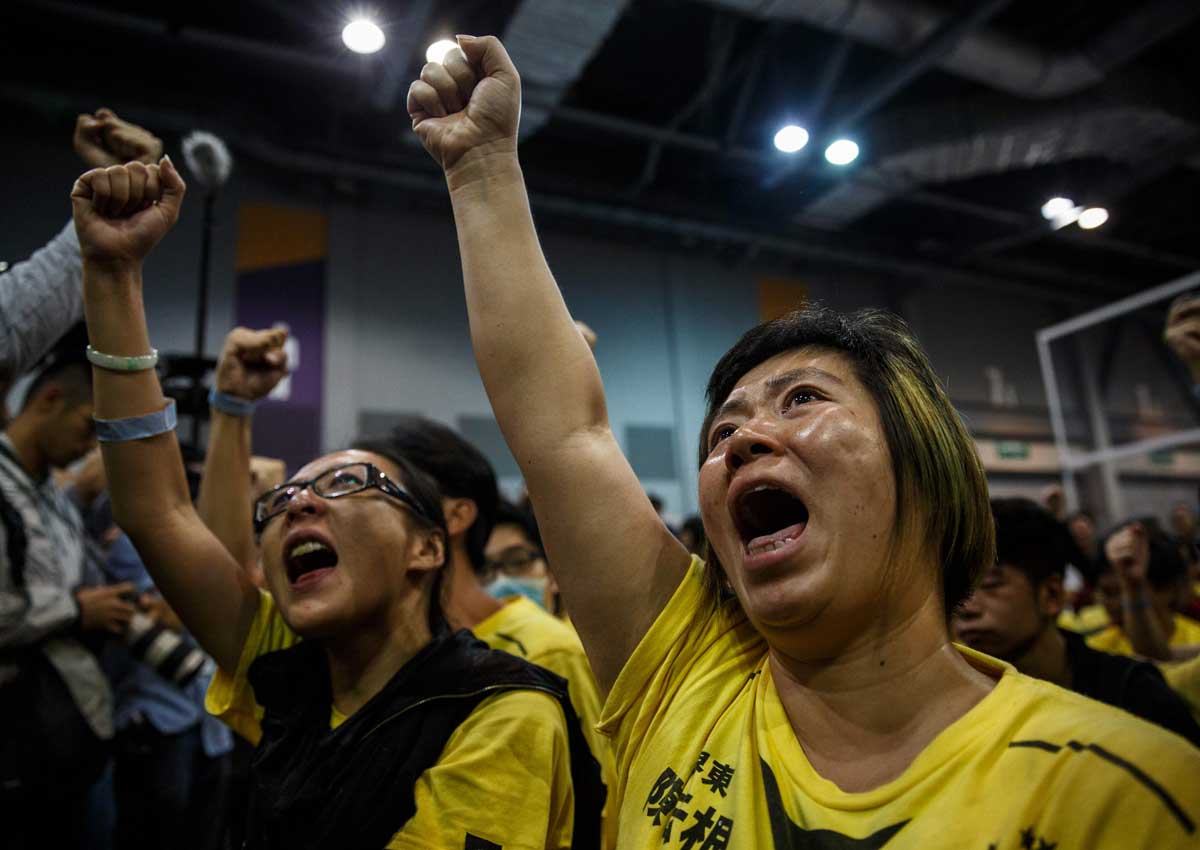Hong Kong – Beijing has warned new Hong Kong lawmakers not to back independence for the semi-autonomous city after young anti-China activists won seats for the first time in key weekend elections.
Sunday’s vote saw activists pushing for more autonomy from Beijing secure a crucial foothold in the city’s Legislative Council (LegCo), as fears grow that China is tightening its grip.
It was the first major poll since pro-democracy rallies in 2014 failed to win concessions on political reform from Beijing.
Some student protest leaders were among those winning seats in the landmark vote. Five candidates advocating independence or self-determination for Hong Kong are to sit in the 70-seat assembly.
In a statement late Monday, China said that it would not tolerate any talk of independence “inside or outside” the legislature.
“We firmly oppose any activity relating to Hong Kong independence in any form, inside or outside the Legislative Council, and firmly support the Hong Kong government to impose punishment in accordance with the law,” state news agency Xinhua cited a spokesperson of the Hong Kong and Macau Affairs Office of the State Council – China’s cabinet – as saying.
The vote saw the highest turnout since Hong Kong was handed back to China by Britain in 1997 under a “one country, two systems” deal that protected the city’s freedoms for 50 years.
Fears that Beijing interference is now threatening those liberties in a range of areas, from politics to education and media, have sparked the birth of the independence movement.
It has been slammed by authorities in Hong Kong and Beijing as illegal and unconstitutional.
The Hong Kong edition of the state-owned China Daily warned Tuesday that wins by activists could mean “separatist ideas” emerge in LegCo.
In a separate column in the newspaper, a China-based academic said there could be legal challenges to lawmakers advocating independence, citing a law under which a candidate or group of voters can lodge a petition against an elected member they believe is ineligible or has acted “illegally”.
Lawmakers will take up their seats on October 1 and will have to swear an oath to uphold the Basic Law – Hong Kong’s mini-constitution, which describes the city as part of China.
It is not yet clear what may happen if they then advocate independence as a possibility for Hong Kong in the legislature.
Political analyst Chung Kim-wah of Polytechnic University said the government would need to be wary of exacerbating divisions in society by freezing out those pushing for more autonomy, known as “localists”.
“Localists got 20 percent of the total votes, including ones that were not voted in. They represent part of society. The government cannot just hastily disqualify them,” he told AFP.
However, the government has already taken steps to deter the pro-independence camp.
It introduced a controversial new form before the LegCo election which required candidates to verify they understood Hong Kong was an “inalienable part of China”. Many refused to sign it.
The most strident independence activists were banned from standing, causing widespread outrage.
Hong Kong’s unpopular leader Leung Chun-ying, seen by critics as a stooge of Beijing, said Tuesday that all lawmakers must abide by the Basic Law.
However, he added that he wanted to cooperate with all legislators.
“(I) hope we can all work for society together,” Leung told reporters.
Anti-establishment parties increased their share of the legislature, taking 30 of 70 seats.
It is almost impossible for them to take a majority, as 30 seats are appointed by special interest groups that tend to be pro-Beijing.





















